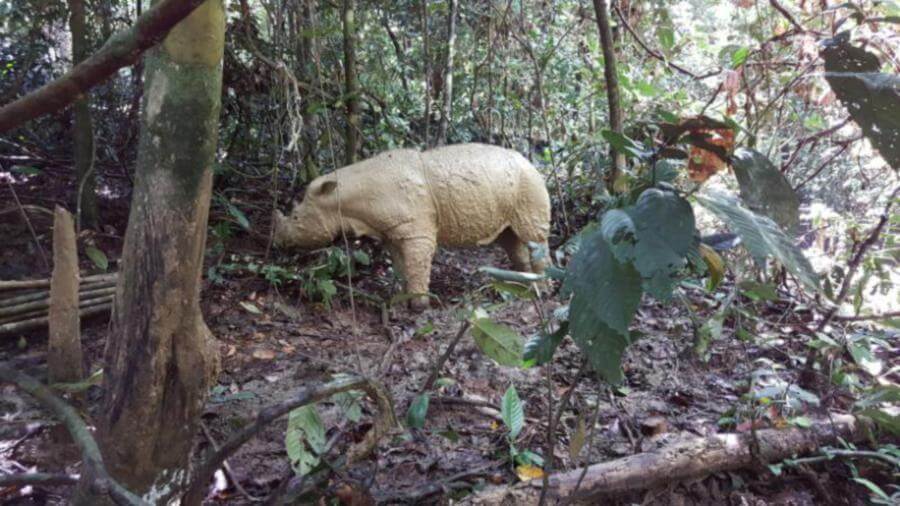KOTA KINABALU: The Sabah Wildlife Department is not in the mood to celebrate just yet, although its critically-ill Sumatran rhino, Puntung, is showing signs of improvement.

Puntung, one of only three Sumatran rhinos left in Malaysia, had suffered from a potentially dangerous abscess on her upper jaw two weeks ago.
Her condition reportedly showed signs of improvement over the weekend.
Sabah Wildlife Department director Augustine Tuuga said Puntung had shown worsening symptoms of loss of appetite, intermittent bleeding from her left nostril and very passive behaviour on Thursday and Friday.
“Normally, she wo consume about 30 kilograms of fresh leaves and twigs daily.
“She ate very little over those two days, and spent most of the daytime lethargic in her wallow,” he said in a statement, adding that they had thought there was no hope left when intermittent bleeding was spotted on her left nostril.
On Saturday, Puntung became more active and the bleeding also stopped.
Augustine, however, said the department remains cautious on her condition despite the recovery signs.
The abscess poses grave concerns as the infection could cause sepsis and eventually death.
The loss of Puntung, would prove to be a catastrophic loss to the future of the species as at 25-years-old, she still has a few years of egg production left to be used for in-vitro fertilisation.
Puntung, along with female rhino, Iman, and male, Kertam, are being cared for by non-governmental organisation Borneo Rhino Alliance (Bora) at the Borneo Rhino Sanctuary in Tabin Wildlife Reserve, Lahad Datu.
Bora Executive Director Datuk Dr John Payne said a combination of constant attention, antibiotics, fruits and various supplements may have turned Puntung’s situation around.
Meanwhile, the sanctuary’s manager and veterinarian Dr Zainal Zainuddin said Puntung’s stubborn nature had made their job of treating her more difficult.
“We have been trying to take an X-ray for the past four days but she is irritated not only by pain but by our attention, not least the injections.
“We are in frequent contact with specialist rhino veterinary surgeons in South Africa, but they need to see the radiograph before we can decide how to proceed.”